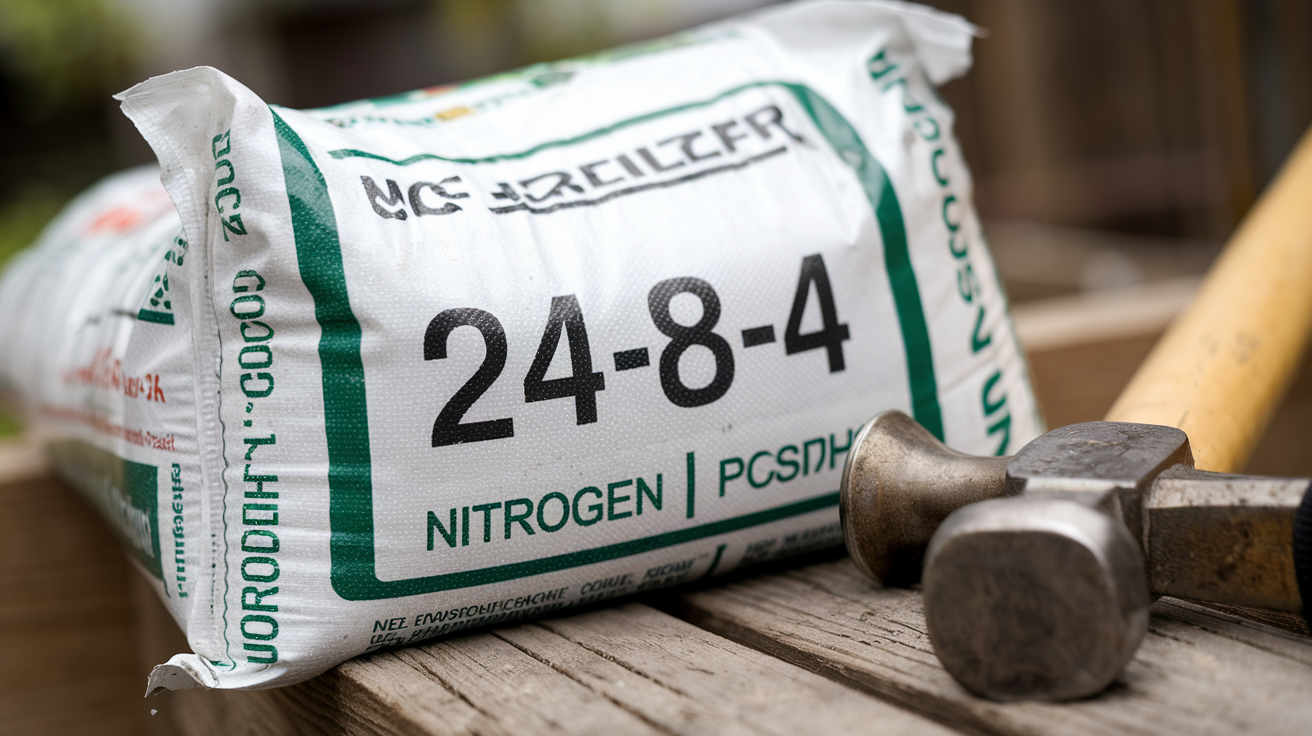Finding the best fertilizer for fruit plants is essential for cultivating healthy, productive gardens. Rhys Garden through years of hands-on experience, I’ve learned that the right nutrients can make a world of difference in the quality and yield of your fruit plants. In this guide, I’ll explore the top fertilizers available and how they can help you achieve bountiful harvests.
The Nitrogen Boost: Why Your Plants Crave It
Nitrogen is often referred to as the “growth element” in the gardening world, and for good reason. It’s the key ingredient that gives your plants their lush, green appearance and promotes vigorous leaf growth. Just as we need our daily vitamins, plants require a steady supply of nitrogen to thrive and flourish.
Nitrogen plays a vital role in several aspects of plant development:
- Chlorophyll production: Nitrogen is essential for the formation of chlorophyll, the pigment that gives plants their green color and enables photosynthesis.
- Protein synthesis: Plants use nitrogen to create amino acids, which are the building blocks of proteins.
- Leaf growth: Adequate nitrogen promotes lush, rapid leaf growth, which is crucial for overall plant health.
- Energy transfer: Nitrogen is a key component in ATP (adenosine triphosphate), the energy currency of cells.
High-Nitrogen Fertilizers: A Closer Look
Now that we understand why nitrogen is so important, let’s explore the world of high-nitrogen fertilizers. These powerhouses of plant nutrition can give your garden the boost it needs to reach its full potential.
Types of High-Nitrogen Fertilizers
Synthetic Fertilizers
- Ammonium Nitrate (33-0-0)
- Ammonium Sulfate (21-0-0)
- Urea (46-0-0)
Organic Fertilizers
- Blood Meal (12-0-0)
- Fish Emulsion (5-1-1)
- Feather Meal (12-0-0)
Comparing Nitrogen Content
When it comes to nitrogen content, not all fertilizers are created equal. Here’s a comparison of some popular high-nitrogen fertilizers:
- Urea (46-0-0): With a whopping 46% nitrogen content, urea takes the crown as the fertilizer highest in nitrogen.
- Ammonium Nitrate (33-0-0): Coming in second, this synthetic fertilizer boasts 33% nitrogen.
- Blood Meal (12-0-0): For those preferring organic options, blood meal offers a respectable 12% nitrogen content.
The Science Behind High-Nitrogen Fertilizers

To truly appreciate the power of high-nitrogen fertilizers, it’s essential to understand the science behind them. Let’s dig deeper into how these fertilizers work their magic in your garden.
Nitrogen Cycle in Soil
The nitrogen cycle is a complex process that involves several stages:
- Nitrogen Fixation: Conversion of atmospheric nitrogen into a form plants can use.
- Ammonification: Decomposition of organic matter into ammonia.
- Nitrification: Conversion of ammonia into nitrates.
- Assimilation: Uptake of nitrogen by plants.
- Denitrification: Conversion of nitrates back into atmospheric nitrogen.
High-nitrogen fertilizers intervene in this cycle by providing readily available nitrogen for plant uptake, bypassing some of the natural processes.
Forms of Nitrogen in Fertilizers
Nitrogen in fertilizers typically comes in three forms:
- Nitrate (NO3-): Immediately available to plants but prone to leaching.
- Ammonium (NH4+): Quickly converted to nitrate in warm soils.
- Urea (CO(NH2)2): Must be converted to ammonium and then nitrate before plants can use it.
Understanding these forms can help you choose the right fertilizer for your specific gardening needs.
Choosing the Right High-Nitrogen Fertilizer for Your Garden
With so many options available, selecting the best high-nitrogen fertilizer for your garden can seem daunting. But fear not! At Rhys Garden, we’re here to guide you through the process.
Factors to Consider
- Soil Type: Sandy soils may benefit from slow-release fertilizers to prevent leaching.
- Plant Type: Some plants, like leafy greens, are heavy nitrogen feeders, while others require less.
- Climate: Temperature and rainfall can affect how quickly nitrogen is released and absorbed.
- Application Method: Consider whether you prefer granular, liquid, or foliar fertilizers.
Organic vs. Synthetic: Pros and Cons
Organic High-Nitrogen Fertilizers:
- Pros: Improve soil structure, promote beneficial microorganisms, environmentally friendly.
- Cons: Lower nitrogen content, slower release, may have odor.
Synthetic High-Nitrogen Fertilizers:
- Pros: Higher nitrogen content, fast-acting, precise nutrient ratios.
- Cons: Can lead to nutrient imbalances, potential environmental impact if overused.
Application Techniques for High-Nitrogen Fertilizers
Proper application of high-nitrogen fertilizers is crucial for maximizing their benefits while avoiding potential pitfalls. Let’s explore some best practices for fertilizer application.
Timing is Everything
- Spring Application: Apply high-nitrogen fertilizers in early spring to support new growth.
- Growing Season: For heavy feeders, reapply every 4-6 weeks during the growing season.
- Avoid Late Season: Reduce nitrogen application in late summer to prevent tender new growth before winter.
Application Methods
- Top Dressing: Sprinkle granular fertilizers around the base of plants and water in.
- Side Dressing: Apply fertilizer in a shallow trench alongside rows of vegetables.
- Foliar Feeding: Spray liquid fertilizers directly on leaves for quick absorption.
- Fertigation: Add water-soluble fertilizers to your irrigation system.
Potential Risks and How to Avoid Them
While high-nitrogen fertilizers can work wonders in your garden, it’s important to be aware of potential risks and how to mitigate them.
Overfertilization: Too Much of a Good Thing
Symptoms of nitrogen overdose include:
- Excessive leaf growth with little fruit production
- Leaf burn or yellowing
- Weakened plant structure
- Increased susceptibility to pests and diseases
To avoid overfertilization:
- Follow package instructions carefully
- Perform regular soil tests
- Use slow-release fertilizers when possible
- Practice crop rotation to balance soil nutrients
Environmental Concerns
Excess nitrogen can lead to:
- Water pollution through runoff
- Soil acidification
- Reduction in beneficial soil microorganisms
Mitigate these risks by:
- Using organic mulches to slow nitrogen release
- Implementing proper irrigation techniques
- Considering cover crops to capture excess nutrients
DIY High-Nitrogen Fertilizers: Garden-to-Table Solutions
For the eco-conscious gardener, creating your own high-nitrogen fertilizers can be a rewarding and sustainable option. Here are some DIY solutions you can try:
Compost Tea
Rich in nitrogen and beneficial microorganisms, compost tea is a gardener’s secret weapon.
Recipe:
- Fill a burlap sack with finished compost
- Submerge in a bucket of water
- Let steep for 24-48 hours
- Dilute the resulting “tea” 1:10 with water before applying
Grass Clipping Fertilizer
Don’t let those lawn clippings go to waste! They’re a fantastic source of nitrogen.
How to use:
- Collect grass clippings (ensure they’re herbicide-free)
- Spread a thin layer around plants as mulch
- As they decompose, they’ll release nitrogen into the soil
Case Studies: Success Stories with High-Nitrogen Fertilizers
Let’s look at some real-world examples of how high-nitrogen fertilizers have transformed gardens:
Case Study 1: Urban Rooftop Garden
- Location: New York City
- Challenge: Poor soil quality and limited space
- Solution: Used a combination of blood meal and fish emulsion
- Results: 40% increase in leafy green production within one growing season
Case Study 2: Commercial Corn Farm
- Location: Iowa, USA
- Challenge: Nitrogen deficiency in sandy soil
- Solution: Implemented a split application of urea fertilizer
- Results: 25% increase in yield and improved crop quality
Expert Insights: What the Pros Say About High-Nitrogen Fertilizers
We reached out to some gardening experts to get their takes on high-nitrogen fertilizers. Here’s what they had to say:
Dr. Sarah Green, Soil Scientist: “While high-nitrogen fertilizers can be incredibly effective, it’s crucial to use them as part of a balanced nutrient management plan. Always start with a soil test to determine your garden’s specific needs.”
Mark Johnson, Organic Farmer: “For those looking to go organic, don’t underestimate the power of legumes as natural nitrogen fixers. Crop rotation with beans or peas can significantly boost soil nitrogen levels.”
Frequently Asked Questions
To address some common queries about high-nitrogen fertilizers, we’ve compiled a list of frequently asked questions:
- Q: What is the fertilizer highest in nitrogen?
A: Urea (46-0-0) is generally considered the fertilizer with the highest nitrogen content. - Q: How often should I apply high-nitrogen fertilizers?
A: It depends on the plant and soil type, but generally every 4-6 weeks during the growing season for heavy feeders. - Q: Can high-nitrogen fertilizers burn my plants?
A: Yes, if applied incorrectly. Always follow package instructions and water thoroughly after application. - Q: Are organic high-nitrogen fertilizers as effective as synthetic ones?
A: While they may work more slowly, organic fertilizers can be just as effective and offer additional soil health benefits. - Q: How can I tell if my plants need more nitrogen?
A: Yellowing leaves (especially older leaves) and stunted growth are common signs of nitrogen deficiency.
Conclusion
Selecting the best fertilizer for your fruit plants is a crucial step toward ensuring their growth and productivity. By understanding the specific needs of your plants and providing them with the appropriate nutrients, you can enjoy a thriving garden full of delicious, home-grown fruits. With the right fertilizer, your fruit plants will flourish, rewarding your efforts with a plentiful and nutritious harvest.

Related Posts
The Ultimate Guide to Fertilizing For Maple Trees
Unlock the Power of Organic Spent Mushroom Compost
The Best Fertilizer for Fruit Plants: Nurturing Your Garden’s Sweet Success